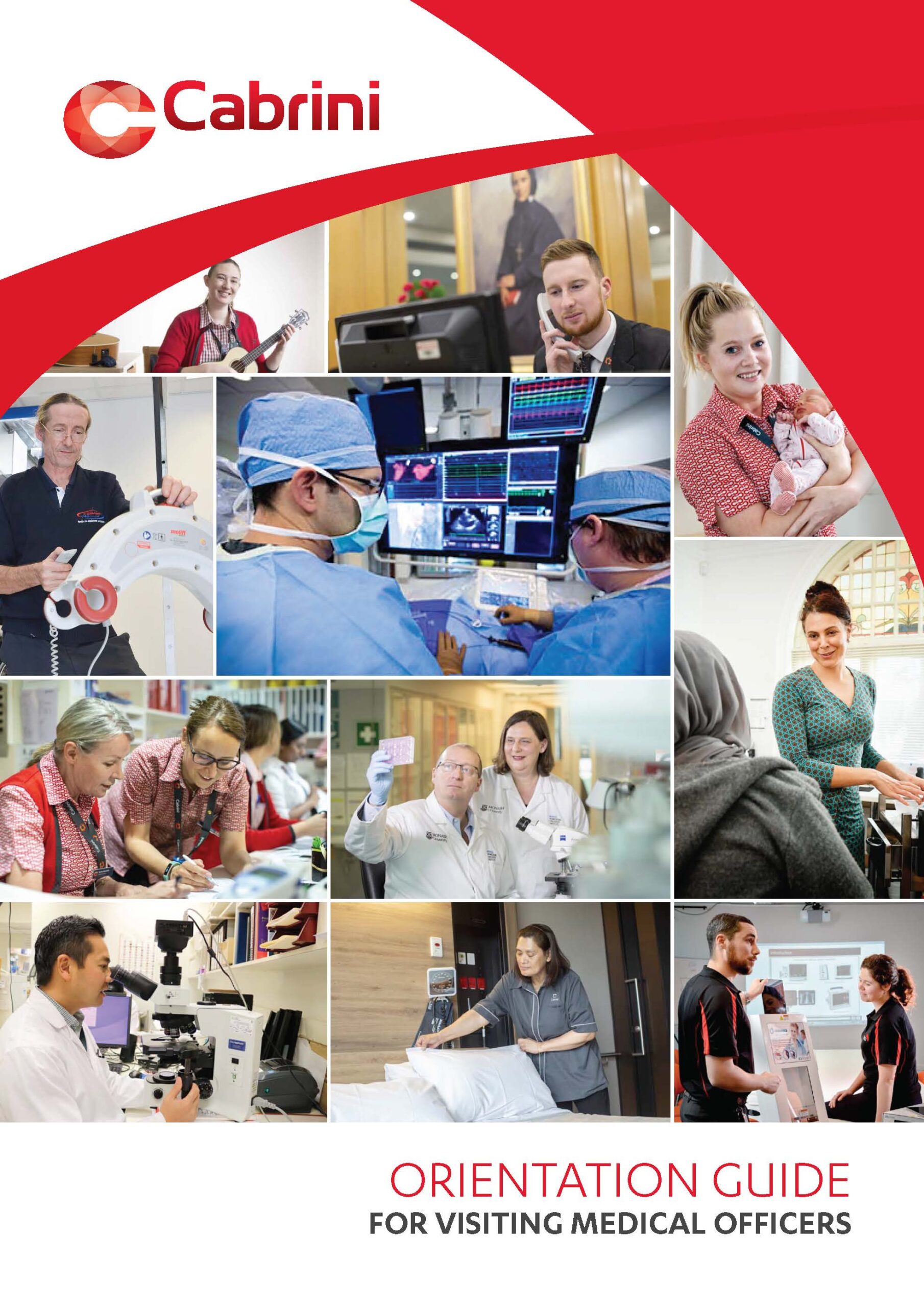Resources
Orientation guide
We recommend all new doctors download and read our orientation guide
Grand Rounds
March | Dr Debbie Gordan – The hitchhikers guide to diabetes in 2024
April | Professor Andrew Wei – Additional Session – Practical management AML partic venetoclax+azacitidine
May | Dr Sarah Milanko – Back to Back: when lower back pain is more than it seems
June | Dr Owen McKay – Moving the needle: improving the diagnosis and management of pancreatic and biliary tract cancers using next generation sequencing (NGS)
July | Dr Adrian Minson – CarT and bispecific therapies in blood cancer: T cells in action and exciting horizons
Mar | Dr Hope Gates-Scovelle – Identifying patients in the Emergency Department nearing the end of life
Apr | Associate Professor Stephen Pianko – Management of Cirrhosis in 2023
June | Dr Dilan Seneviratne Epa – Thyroid disease – an update on the highs and lows
July | Dr Jun (JK) Khoo – Interstitial Lung Disease – 2023 update
August | Prof Gary Richardson OAM – Getting clinical research happening – opportunities and how we do it at Cabrini
September | Dr Zoe Brown – Is all vasculitis the same? Update in Giant Cell Arteritis
October | Dr Nick Gelber – New Radiology Techniques for the non-Radiologist – – what you just have to know in 2023!
November | Professor Paul McMurrick – Quality assurance data: is it all about standards or does it benefit research?
December| Dr Louise Creati – Cardio-Oncology updates
Cabrini Q&A program and sessions
- Tuesday 14 February – Child Safe Standards: how do they inform our care
- Tuesday 14 March – Clinical Documentation: an essential part of care
- Tuesday 18 April – Preventing Falls: a collaborative effort
- Tuesday 16 May – Individualising care and communication for patients with disabilities or complex needs
- Tuesday 16 June – Pastoral Care at Cabrini: what it is and why it matters
- Tuesday 11 July – Workplace decisions: how do we decide what’s best and why?
- Tuesday 8 August – Statutory Duty of Candour at Cabrini: reinforcing the positive patient experience
- Tuesday 23 November – The need for speed – ask: Could it be Sepsis?
Forms and information
New Cabrini consent forms
Cabrini has reviewed our consent forms to align with legislative requirements, best practice and recommendations from ACHS accreditation. After extensive consultation, including with the Medical Staff Executive, two new forms have been developed:
- ‘Consent to Procedure or Surgical Treatment’ (MR002DS) – for all invasive or high-risk procedures and surgeries.
- ‘Consent to Medical Treatment and/or Blood Product Administration’ (MR002DM) – for invasive or high-risk medical treatments, such as chemotherapy, blood transfusions, or iron infusions.
The new consent forms will come into effect from the 3rd of July 2023, replacing the current ‘Acknowledgement of Consent to Treatment’ forms (MR002D).
Patients must have a completed consent form signed by the treating Medical Practitioner and the patient (or parent/guardian/person responsible) before treatment commences and/or before administering any anaesthetic/sedation.
Forms are available in both hard copy and digital PDF format – attached below. We encourage consent forms to be sent in via email ahead of time, along with the admission/booking request.
Feedback on the forms can be provided by emailing consent@cabrini.com.au (please note that feedback will be used in aggregate, and individual responses may not be provided).
Resources
Completing death certificates
The attached document, also available through the Births, Deaths and Marriages (BDM) website, provides guidelines to filling out the cause of death form and examples of this.
Correcting death certificates
If you need to correct details after submission, this can only be made by the medical practitioner who submitted the cause of death. If they are unavailable, the Senior Medical Registrar or the Treating Consultant under whom the deceased was admitted and treated. The correction email must include why the certifying medical practitioner is unavailable. To correct a submitted form:
Email bdmmedicals@justice.vic.gov.au as soon as possible with:
- Your own details
- The deceased person’s details
- The details of the correction, such as incorrect name, date of death, date of birth, place of death, cause of death
- The reason the correction is needed.
Send a corrected copy to the funeral director:
- Manually correct a printed copy
- Sign next to the corrections
- Send the corrected copy to the funeral director, either a hard copy or a scan via email. The copy with corrections should reflect the details emailed to BDM.
BDM will email a confirmation to the medical practitioner once the record has been corrected.
From 19 June 2019, voluntary assisted dying is legal in Victoria. The Voluntary Assisted Dying Act 2017 (Vic) allows certain people in the late stages of advanced disease to take a substance prescribed by a doctor that will end their life, at a time and place of their choosing.
There are strict eligibility requirements and not all patients will be able to access voluntary assisted dying.
Cabrini’s position is that doctors and other healthcare practitioners should not intentionally cause the death of a person in their care, and should not assist a person in taking their own life. Cabrini will not be participating in voluntary assisted dying. We welcome all to our healthcare service, whatever their views and beliefs. We will support our staff in being able to respond in a sensitive and open way to any person’s desire to discuss or access voluntary assisted dying.
We will never abandon our patients and we will continue to accompany them, if they choose, from diagnosis until their death.
Resources:
Cabrini uses electronic charting of Insulin across the organisation, to address the risks associated with a hybrid system (paper and electronic). This initiative reduces the number of insulin-related incidents and improves patient safety overall.
All regular and supplemental (sliding scale or stat dose) insulin are prescribed on MedChart. Insulin infusions will remain on paper charts. The Diabetic Observation Record (MR183) includes track-and-trigger functionality.
